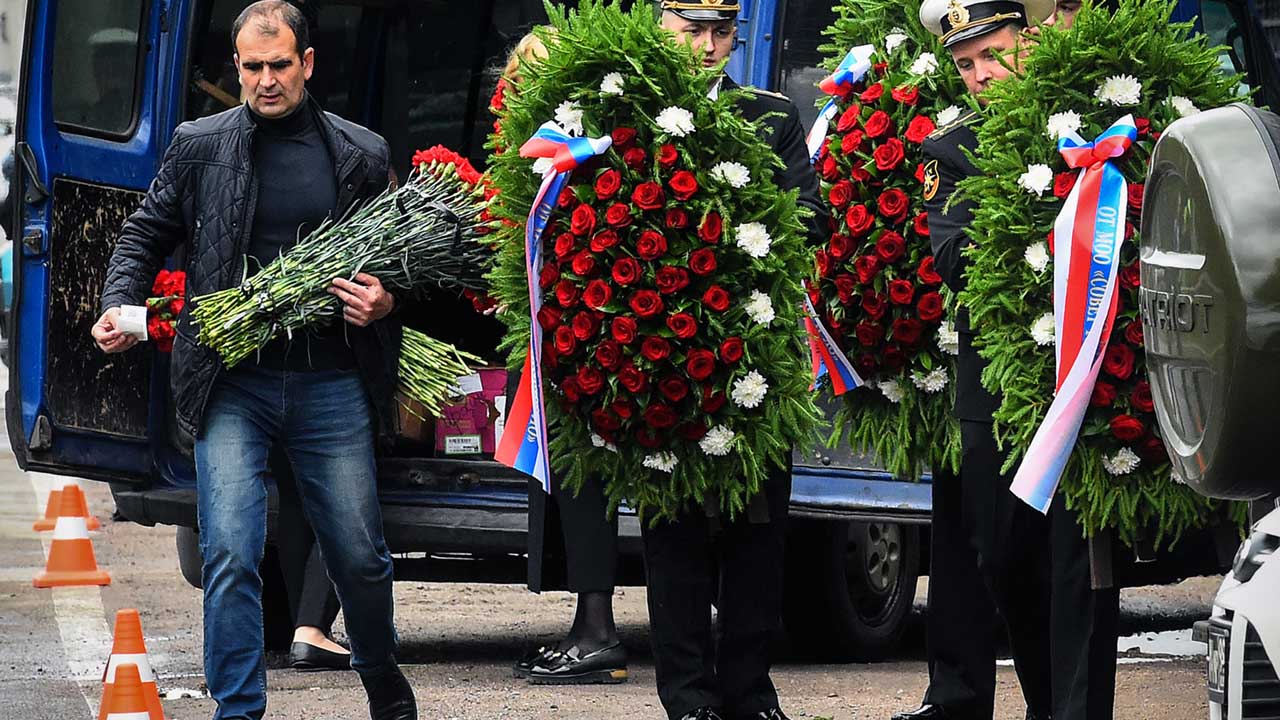
The funerals of 14 Russian navy officers killed in a fire on a nuclear-powered submersible in circumstances the Kremlin has not fully revealed began Saturday in Saint Petersburg amid tight security.
The officers died in the Barents Sea on Monday, but the accident was only made public a day later. Russia has said the details of the tragedy were a “state secret.”
Moscow confirmed the vessel was nuclear-powered for the first time on Friday.
The funerals were closed to the press and took place in the former imperial capital’s historic Serafimovskoye Cemetery.
They began amid heavy security, with military police standing outside the cemetery gates.
“You have to understand that the identities of most of the people who gathered here are secret and their faces cannot be shown,” a representative of the defence ministry told AFP.
An AFP reporter saw 14 vehicles carrying coffins drive into the cemetery.
“This is a great sorrow,” said a young woman clad in black who was attending the ceremony. She held a wreath that read “from friends and classmates”.
Some ordinary Saint Petersburg residents came to the gates of the cemetery to pay their respects to the high-ranking seamen.
“I feel so sorry for them, like they were my own (family),” said 60-year old Natalya Stepanova, who lives nearby.
“They are real heroes,” she said.
Russian President Vladimir Putin posthumously awarded state honours to all 14 of the submariners.
The tragedy has echoes of the sinking of the Kursk submarine in 2000, also in the Barents Sea, that claimed 118 lives and shook the first year of Putin’s presidency.
Russian media reported that the 14 seamen will be buried near a monument to the Kursk victims in the Serafimovskoye Cemetery.
Officials have released little information about the accident, saying the crew was studying the sea floor. But Russian media reported the ship was a top-secret nuclear-powered mini-submarine.
On Friday, the defence ministry confirmed for the first time that the vessel was in fact nuclear-powered. It said the fire started in the battery compartment and did not impact the vessel’s nuclear reactor.
Nearly all of the victims were highly decorated officers and included seven Captain First Rank officers — the most senior staff officers in the Russian navy.



